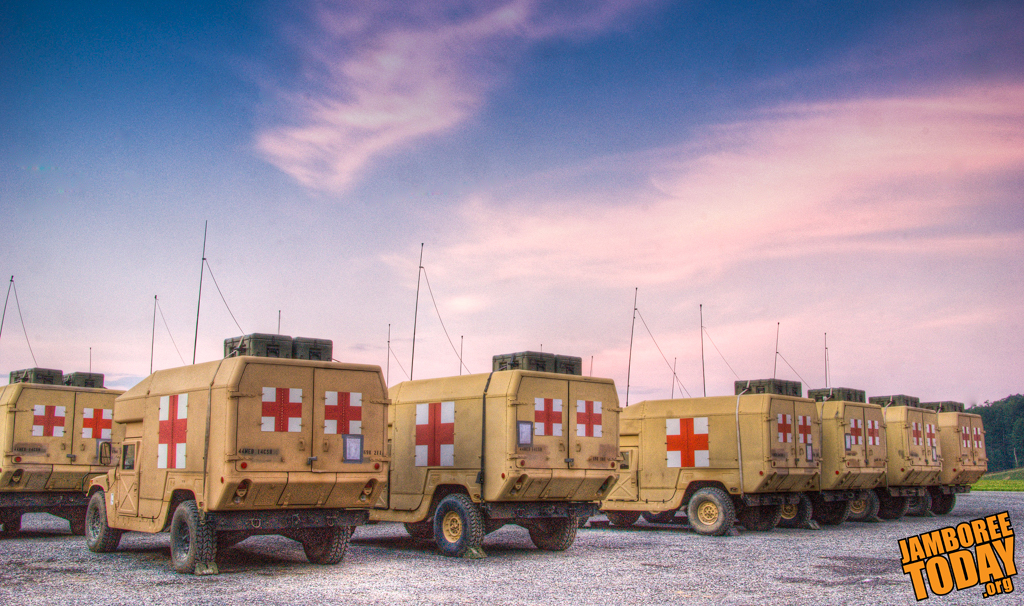"From a medical perspective, [the Jamboree] went really well," says Deputy Chief Medical Officer David Berry.
In any community of 36,000 or so people, one expects some injuries or illness along the way. As the 2013 National Scout Jamboree winds down, medical and safety staff reflect on a well-planned and well-executed effort that kept Scouts, Venturers, and visitors out of harm's way.
Most of what medical staff saw, Berry says, were minor heat-related issues that were a simple fix.
Berry explained that his team of 550 jamboree medical professionals worked well together with contracted EMTs and paramedics, military personnel and area hospitals.
"Prevention is always key," says Berry; there was extensive planning put into place before a single Scout or Venturer set foot on the Summit Bechtel Reserve.
Dozens of medical centers were set up across the Summit, including an extensive health lodge complete with state of the art equipment to assist on-site treatment.
Campers were also reminded to "beef up your personal first aid kit so you're prepared to take care of yourself," says Berry. For participants that forgot their moleskin, drying powder, or band-aids, the medical staff offered "self-help" boxes at base camp medical facilities, where participants and staff could pick up these types of items for free. Berry says people frequently took advantage of that.
Looking toward future events and jamborees here at the Summit, Berry advised everyone to be physically prepared for the demands of West Virginia terrain.
"You do have to walk, and it's long distances, and it's all the time," says Berry.
Looking back, Berry says, "We anticipated many of the things we thought we would have...and we were prepared for them."

